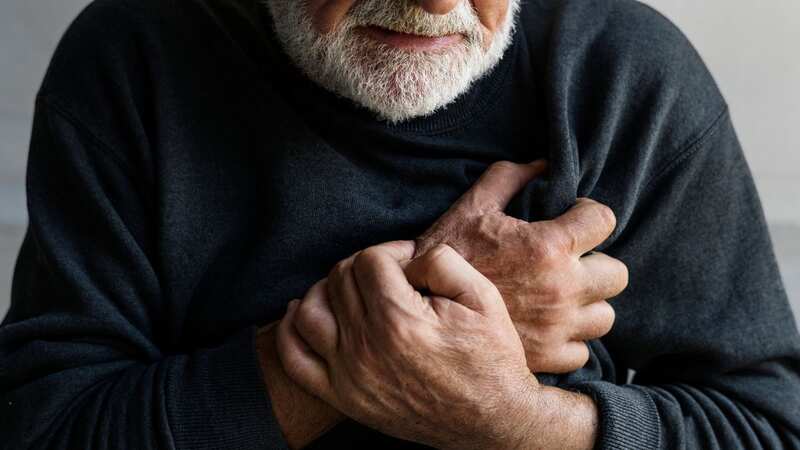Little-known jaw symptom could be warning sign of a heart attack

Someone is admitted to a UK hospital due to a heart attack every five minutes - that's around 100,000 cases each year.
Medically known as myocardial infarction, heart attacks occur when there is a sudden loss of blood flow to a part of the heart muscle. This can cause serious damage to the heart muscle and can be life-threatening, especially if not treated straight away.
Luckily, more than seven out of 10 people in the UK survive a heart attack - a vast improvement from the 1960s when a stark 70 per cent of cases resulted in death. It's therefore essential people are aware of the symptoms of a heart attack - and know how to reduce their risk.
According to the NHS and British Heart Foundation, one of the main symptoms of a heart attack is chest pain. This may present itself as a feeling of 'pressure, heaviness, tightness or squeezing' across the chest and can vary in severity. While some people experience harsh chest pain, others report a similar discomfort to indigestion and this all depends on the person's age and pain tolerance.
But pain may be experienced in other parts of the body too. This may be a sensation that the pain is 'spreading from your chest to your arms' and usually affects the left arm. However, it can also affect the jaw, neck, back, and stomach.
 Teachers, civil servants and train drivers walk out in biggest strike in decade
Teachers, civil servants and train drivers walk out in biggest strike in decade
Of course, jaw pain may be a result of dental problems or can even occur after eating certain tought-to-chew foods. Cardiologist Harmony Reynolds told Health Central that jaw pain linked to heart attacks will be located at lower end of the jawline and tends to feel like 'pressure' that radiates from the chest.
"If the jaw pain is new, unexplained, and lasts longer than 10 minutes, get it evaluated immediately at a hospital," the doctor added. "Also, if you have chest and jaw pain during exercise [but] improves with rest, that, too, could be a concern for pain related to the heart."
If you think somebody is having a heart attack, you must call 999 immediately and ask for an ambulance. Other warning signs to look out for include:
- Feeling lightheaded/ dizzy
- Shortness of breath
- Sweating
- Feeling/ Being sick
- Cough or wheezing
- An 'overwhelming' feeling of anxiety, similar to a panic attack
Want the latest health news and fitness tips sent straight to your inbox? Sign up to our
To prevent a heart attack, health bodies recommend significant lifestyle changes. This includes quitting cigarettes if you're a smoker, losing weight if you're overweight or obese, moderating your alcohol consumption, and doing regular moderate-intensity exercise (at least 150 minutes each week).
The NHS also advises following a 'low-fat, high fibre diet' that features whole-grains and at least five portions of fruit and veg a day. For more information and support, check out these resources.
Read more similar news:
Comments:
comments powered by Disqus

































